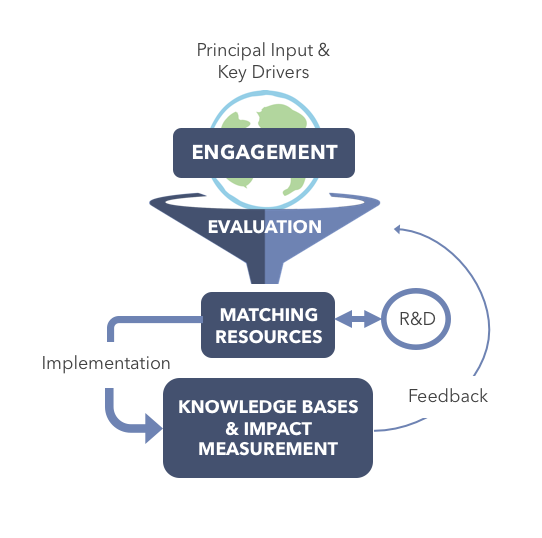MIT Climate Plan Accelerator
Bringing the digital revolution to the climate change challenge
Bringing the digital revolution to the climate change challenge
CCI, in collaboration with other MIT centers, is organizing a program called the Climate Plan Accelerator (CPA) to help governments and organizations use powerful new collective intelligence, engagement, and climate modeling tools emerging from the digital revolution to achieve their climate goals.
Climate change: One of the world’s most pressing challenges.
In the historic UN Paris Agreement on climate change, almost every nation in the world established an ambitious set of country-level goals for tackling climate change. These goals, called Nationally Determined Contributions (NDCs), include commitments to both reducing greenhouse gas emissions (mitigation) and adapting to changes such as sea level rise and higher temperatures (adaptation).
The Agreement has catalyzed countries, cities, states/provinces, organizations, and companies to create climate action plans for implementing and surpassing these NDCs, which has become one of the world’s most critical challenges.
Collective intelligence: A new way of tackling the problem.
The internet is empowering people around the world to collaborate in ways never before possible. Open innovation, wikis, crowdsourcing, and digital communities are being used by governments and organizations to tackle some of their most pressing problems, while also meeting the growing global call for more transparency, stakeholder involvement, and accountability. Crowd funding platforms are enabling flows of money to projects, people, and companies that never would have happened before.
In addition to these new forms of collaboration, scientific and computational advancements are producing much more powerful simulation and modeling tools to demonstrate the potential impacts of decisions we make today. By strengthening access to these tools, decision-makers can make better informed, science-based choices about which programs and policies can best achieve their climate goals.
Four Pillars
In partnership with universities and institutions around the world, the CPA aims to work closely with governments and organizations to:
Engage
Evaluate
Match Resources
Share & Measure




About these MIT Centers
These MIT centers have significant experience with applying collective intelligence and computational modeling to the challenge of climate change. The Climate CoLab platform, spearheaded by the MIT Center for Collective Intelligence (CCI), hosts a growing, global community of over 100,000 people – including experts, businesspeople, nonprofit leaders, students, and others – from almost every country in the world. This community is engaged in proposing and evaluating proposals for climate change mitigation, adaptation, and geoengineering. The platform has hosted 94 contests, many with partners such as the UN Executive Office of the Secretary-General, World Bank, Nike, Carbon War Room, 100 Resilient Cities, the City of Boulder, CO, and many others.
In parallel, the MIT Joint Program on the Science and Policy of Global Change (“Joint Program”) has provided decision-makers, both public and private, with information about the risks associated with the impacts of global change, based on its unique capabilities for modeling the complex interactions between economy and environment.
Working closely with the Joint Program is MIT Center for Energy and Environmental Policy Research (CEEPR), a focal point for research on energy and environmental policy at MIT, that collaborates with industry partners and policymakers to point to options that will be both palatable and effective at reducing CO2emissions.
The computer models developed by MIT Sloan Sustainability Initiative and its partners have been used by John Kerry and other US negotiators, and are behind the New York Times reporting on global climate change agreements, goals, and progress. Its World Climate simulation game has engaged more than 34,000 people in 74 countries.
Status
MIT is currently working with two government entities with ambitious climate commitments to conduct a pilot program for the Climate Plan Accelerator. Once the pilots are completed, we will explore options for scaling the CPA to make it available to governments and organizations worldwide.
Contacts
Thomas Malone, Director of the MIT Center for Collective Intelligence
John Reilly, Co-Director of the MIT Joint Program on the Science and Policy of Global Change
Jason Jay, Director of the MIT Sloan Sustainability Initiative
Research
In addition to supporting government and organizations as they work towards their climate goals, the Climate Plan Accelerator is exploring the following research objectives:

